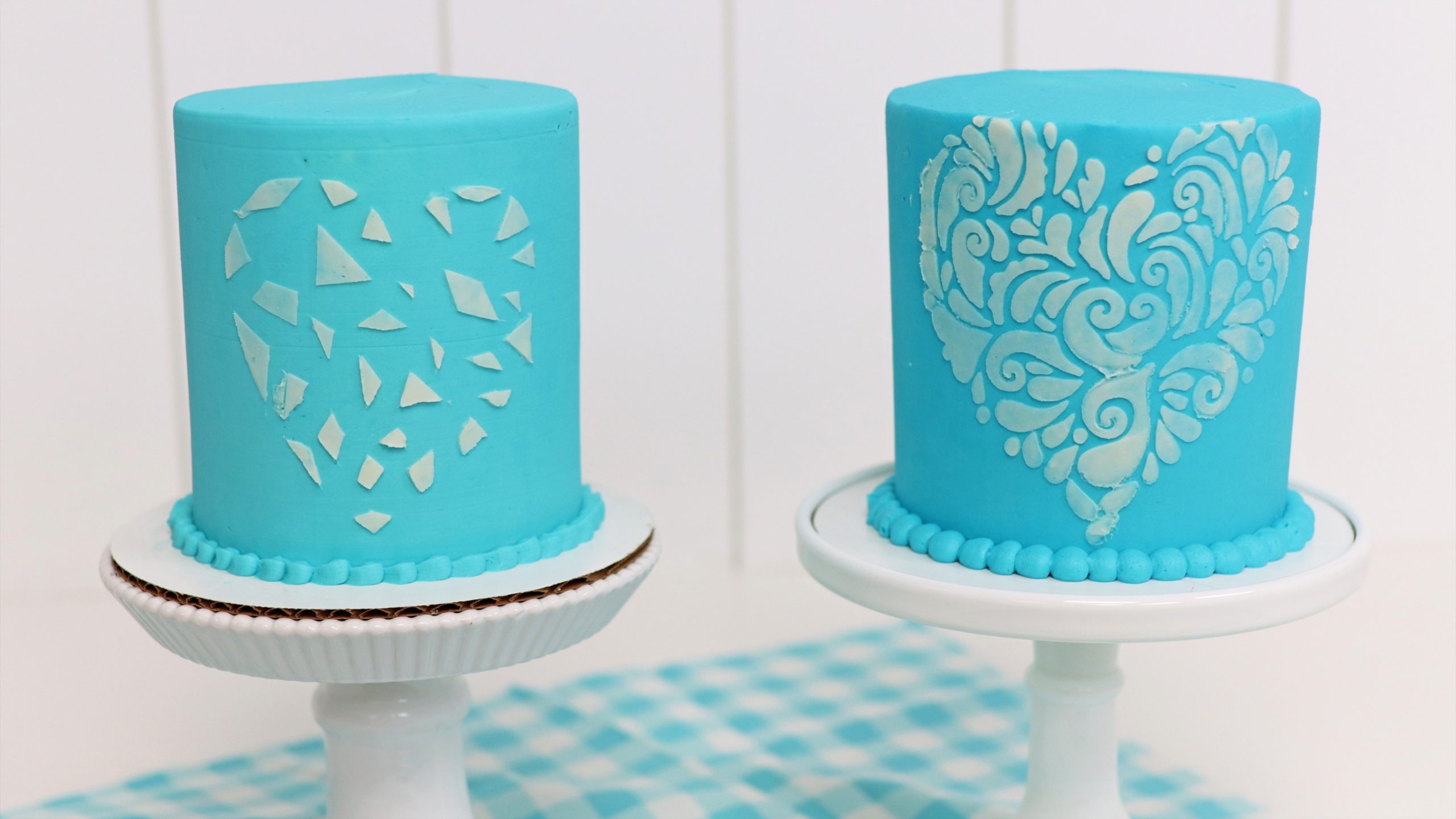
Using two identical cakes I’m going to show you which tools I use to frost and decorate each cake and tell you where I think it’s worth buying the cheapest option, and where it’s worth splurging for better quality. I hope this helps you choose what cake decorating tools to invest in!
If you prefer to watch a video of this tutorial, scroll to the bottom of the page.
Here are two cakes ready to be covered with frosting. I’ll be using my 4 Minute Buttercream for both the frosting and decorations. First,let’s look at the different options you have for colouring your frosting.
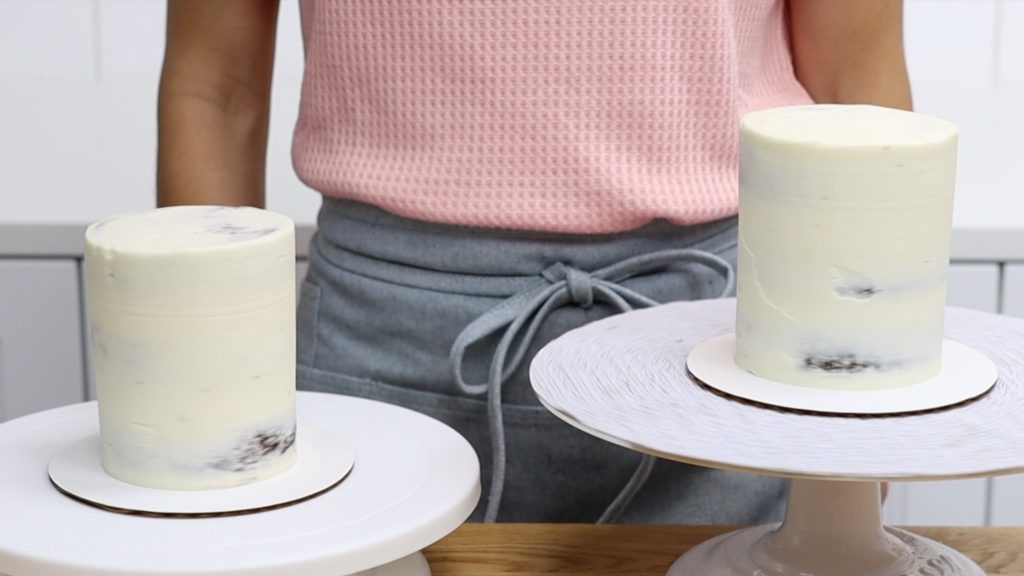
SAVE
The first option is liquid colour, which is water based and you can buy very cheaply at a supermarket or grocery store. You need a generous squirt, maybe a quarter of the bottle to achieve a bright colour of buttercream.
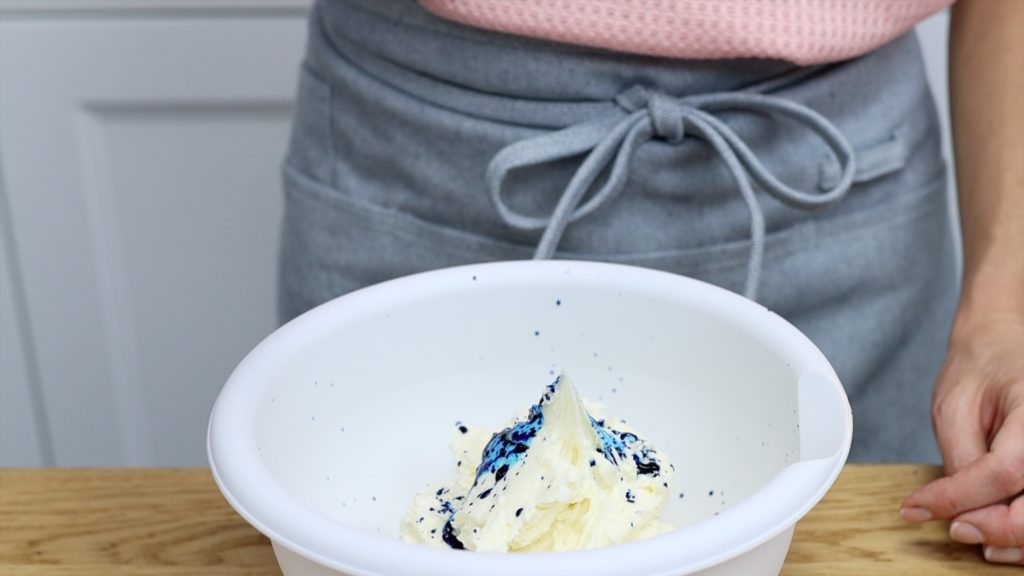
For really bold colours like red or black you’ll need the whole bottle, or maybe more than one, which will affect the consistency of the buttercream so I don’t recommend using liquids for those colours, but for this blue the liquid works perfectly.
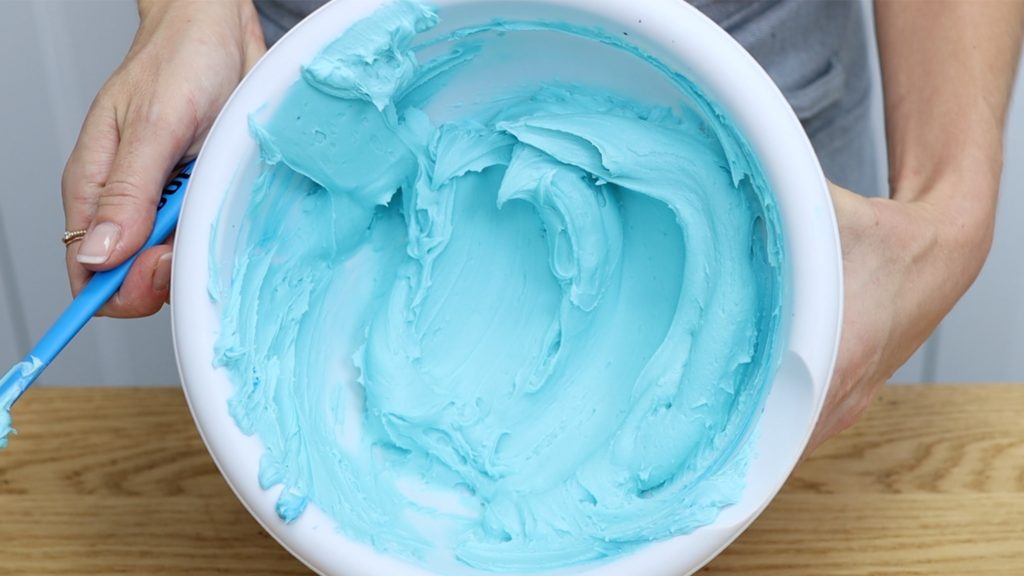
SPLURGE
The next option is to use gel colours. These are a bit more expensive but they’re much more concentrated than liquid colours so with just a drop I can make the same bright blue that I made using a quarter of a bottle of liquid colour. For red or black I would definitely choose a gel rather than a liquid color since you need so much less gel to get a true black and red. Also, gels come in a huge range of colour options whereas liquids usually come in little packs with just red, blue, yellow and green. But if you want one of those colours, and a light shade of it, like this blue, the results are the same for liquid and gel, so saving money by buying liquids is smart.
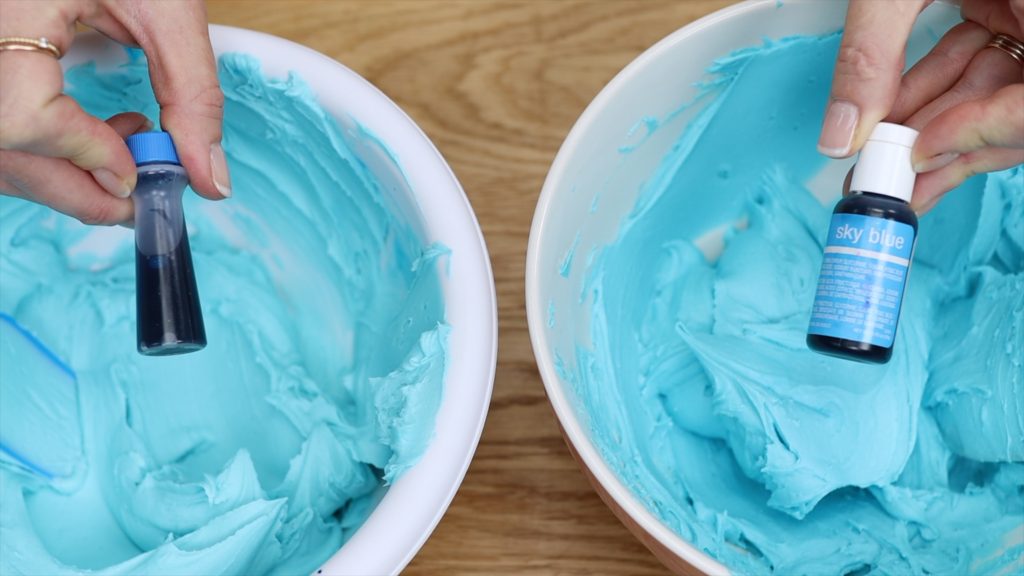
One of the very first tools to invest in when you start cake decorating is a
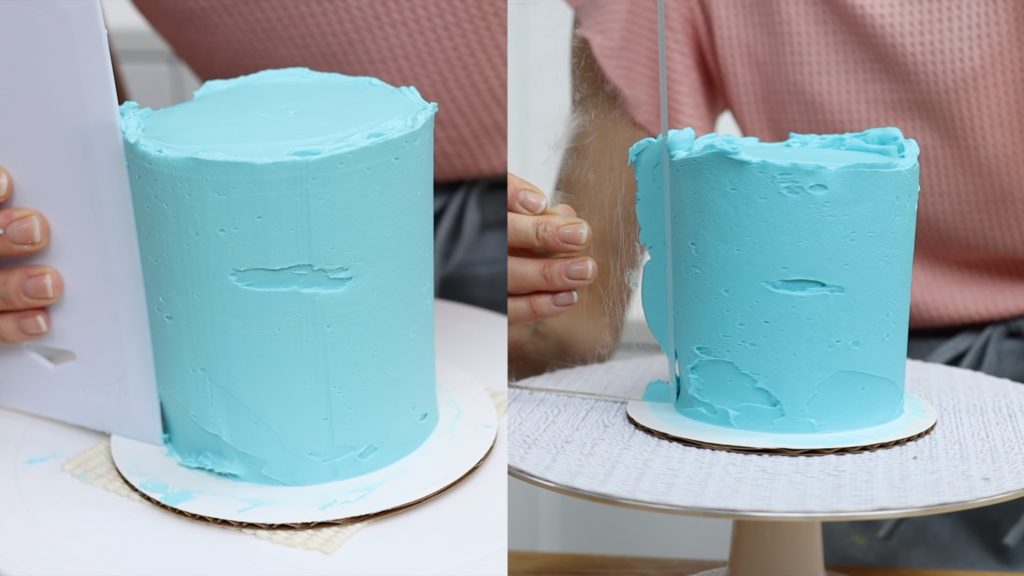
SAVE
The cheapest option is a plastic
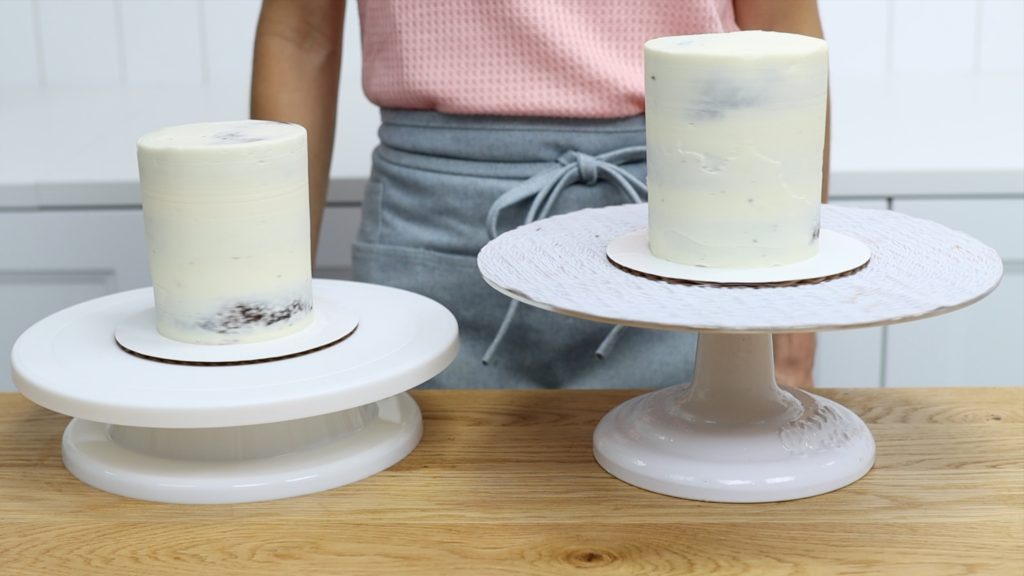
SPLURGE
In comparison, a metal
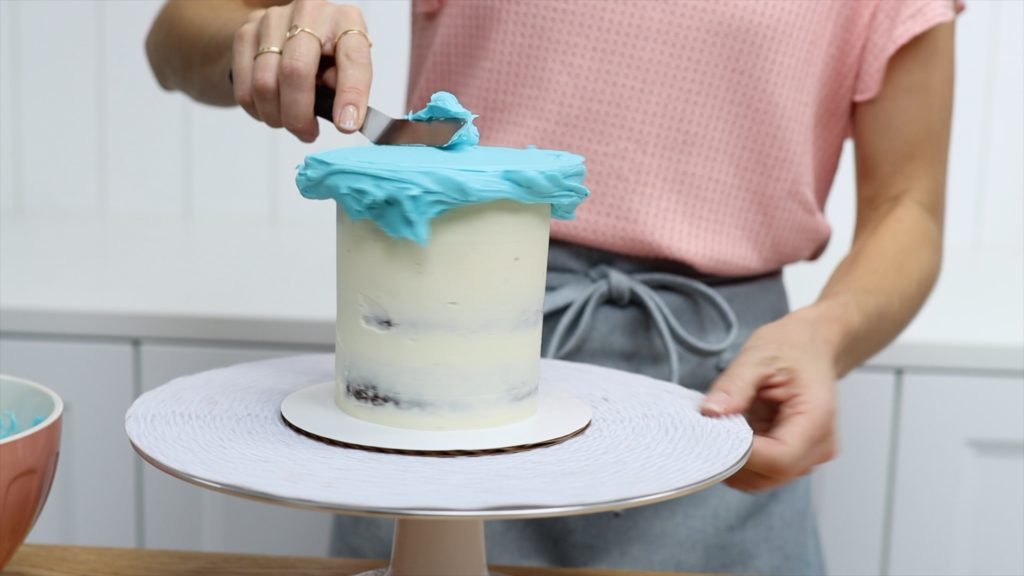
Quick side note: for a
Before choosing whether to save or splurge on a
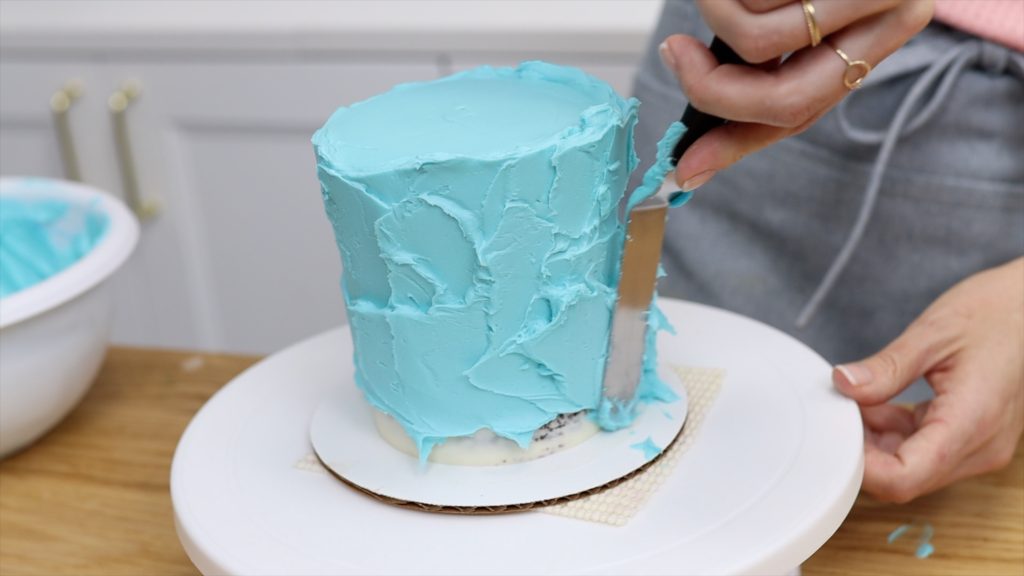
Getting super smooth frosting on your cake is really important for any cake design and I’m going to show you two very different options for getting that smooth frosting: a plastic cake comb and an acrylic cake comb. After you spread the frosting all over your cake, you use your cake comb to scrape the excess frosting off, leaving a smooth layer behind.
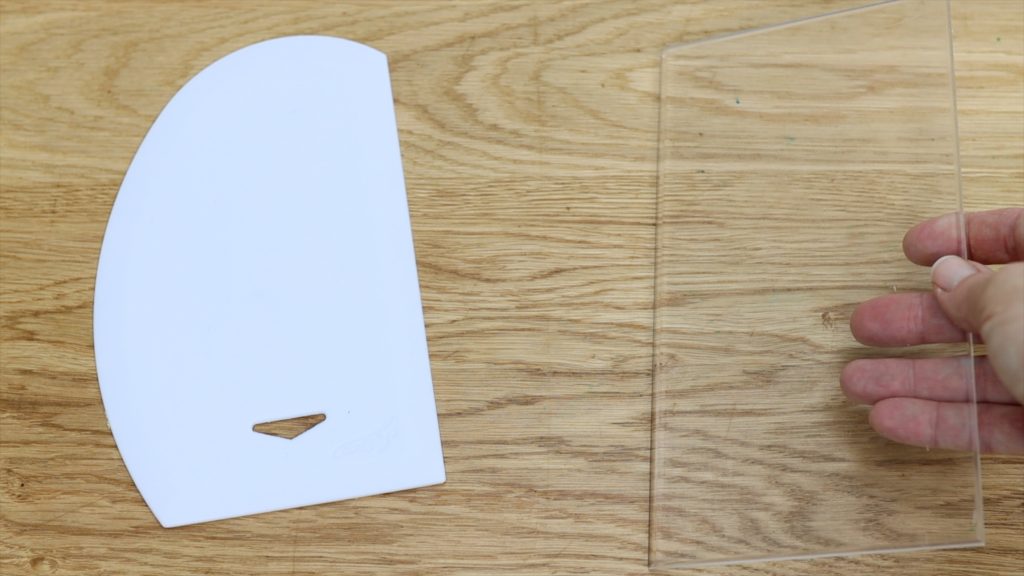
SAVE
Plastic cake combs are much cheaper than acrylic ones. Look at the result of the plastic cake comb and the plastic
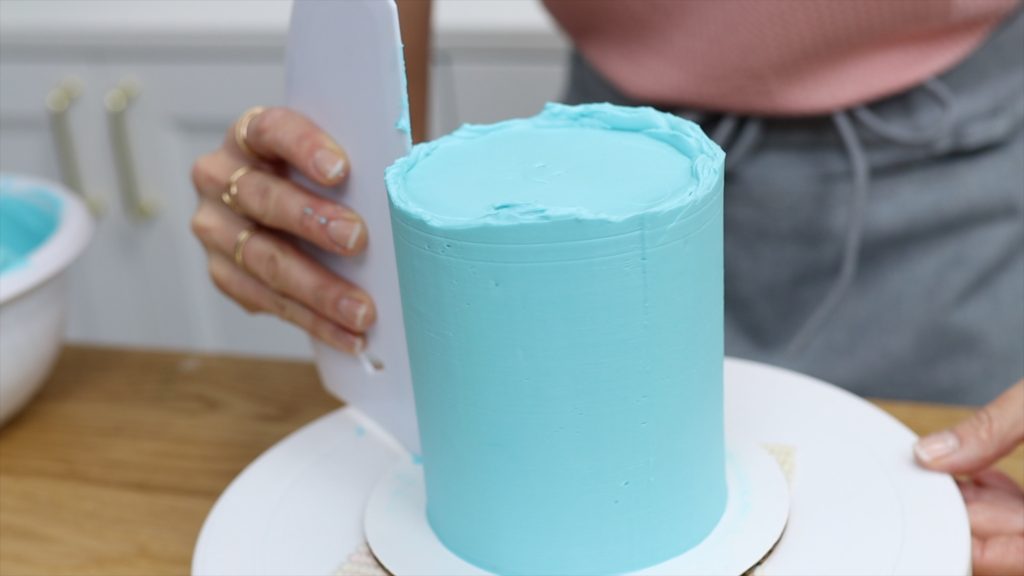
The little dents you see going up and down the cake all the way around are caused by the jerky movements of the plastic
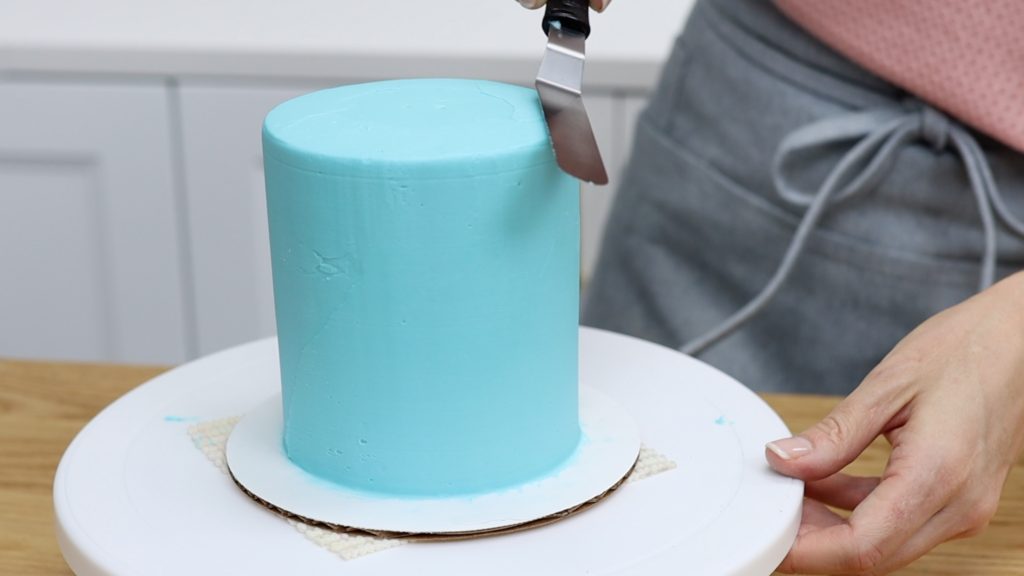
SPLURGE
Let’s compare this to an acrylic cake comb and a metal
I definitely recommend splurging on a good quality acrylic cake comb over a plastic one and a metal
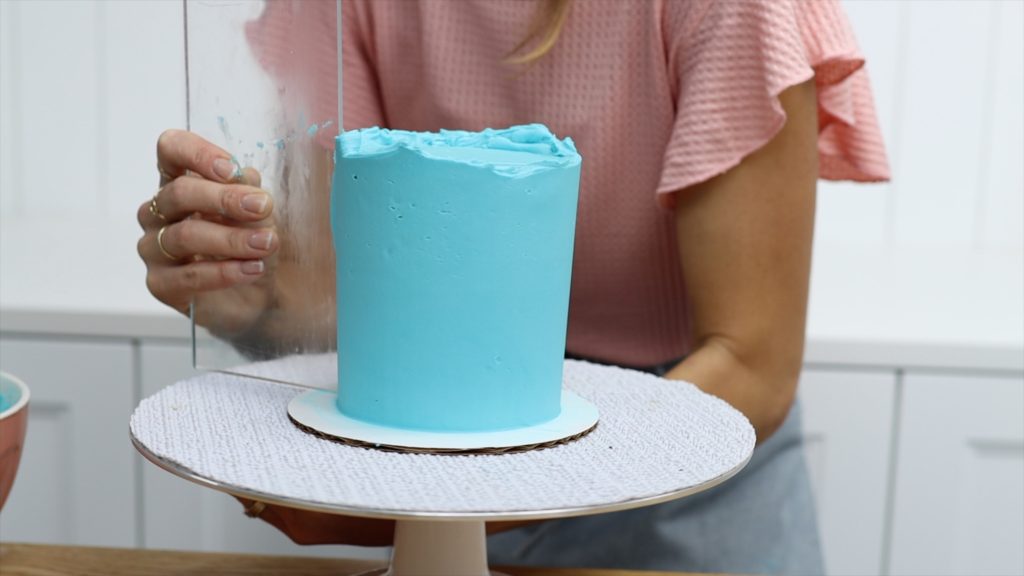
One the the quickest and easiest ways to decorate a cake is to use a stencil, but there are different options here as well. You can make your own incredible cheaply or you can buy lots of very impressive, intricate designs.
SAVE
To make your own stencil, cut a piece of parchment paper wide enough to wrap around at least half of your cake, and draw a shape onto it.
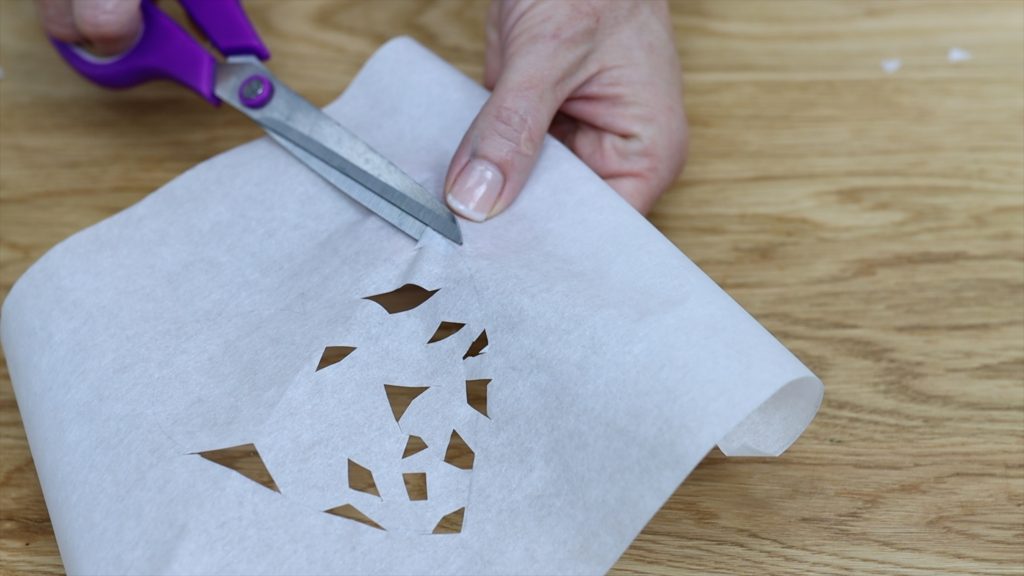
Use scissors to cut out the whole shape or cut out a design within the shape, for example I’m cutting out random triangles and diamonds within this heart to make a mosaic style design. This is time consuming but it’s also very very cheap!
The stencil wraps easily around the cake if you buy it in a roll, which makes applying it to the cake very easy.
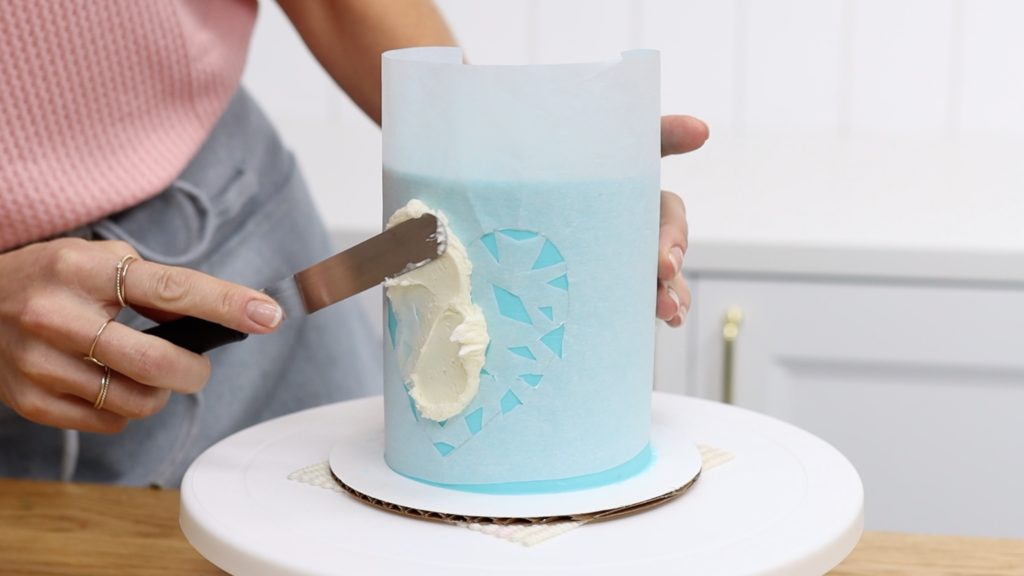
Spread frosting over it, scrape off the excess and smooth it with your
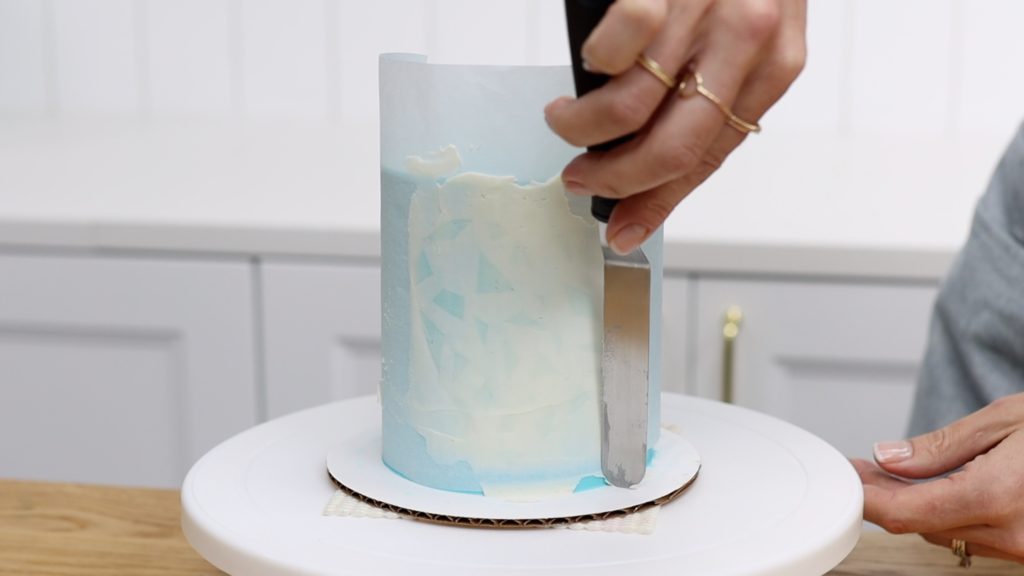
You can make your stencil as detailed as you want it to be, and the result is neat and unique.
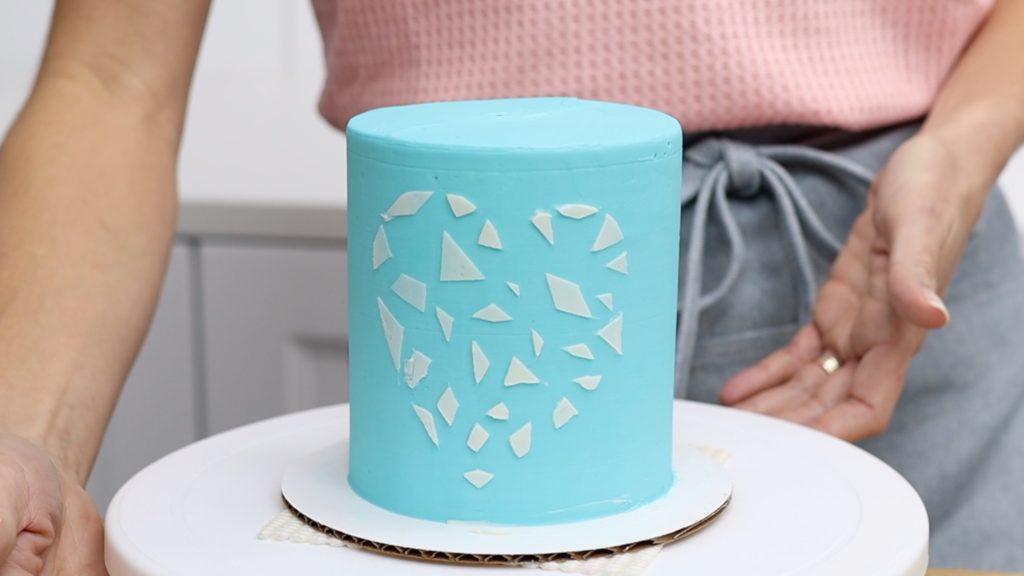
SPLURGE
For a pre-made stencil follow the same steps: wrap the stencil around the cake and then spread frosting over it and scrape it off.
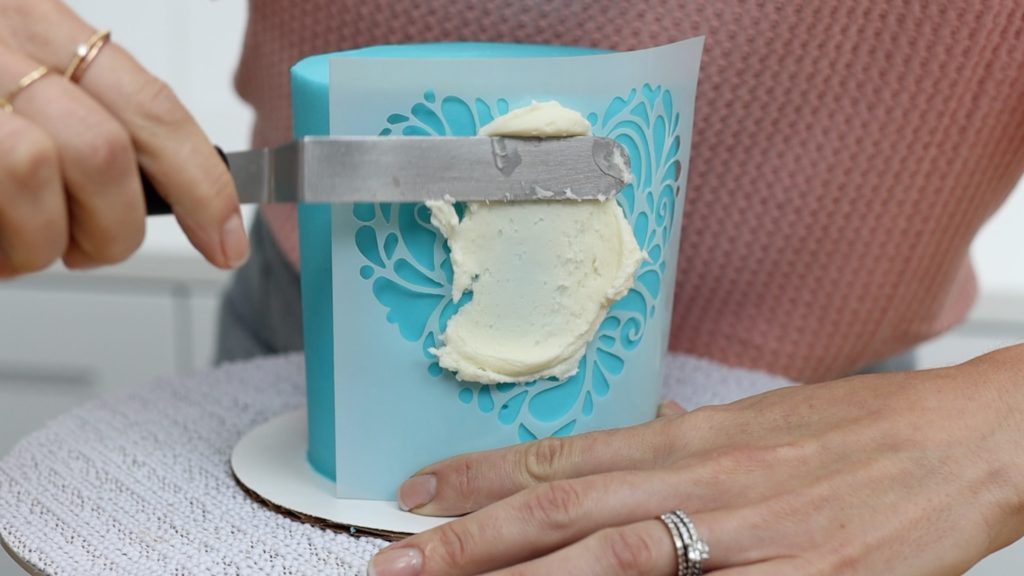
I should mention that your cake needs to be cold before you do this, so that the frosting has set and doesn’t get damaged by the stencil.
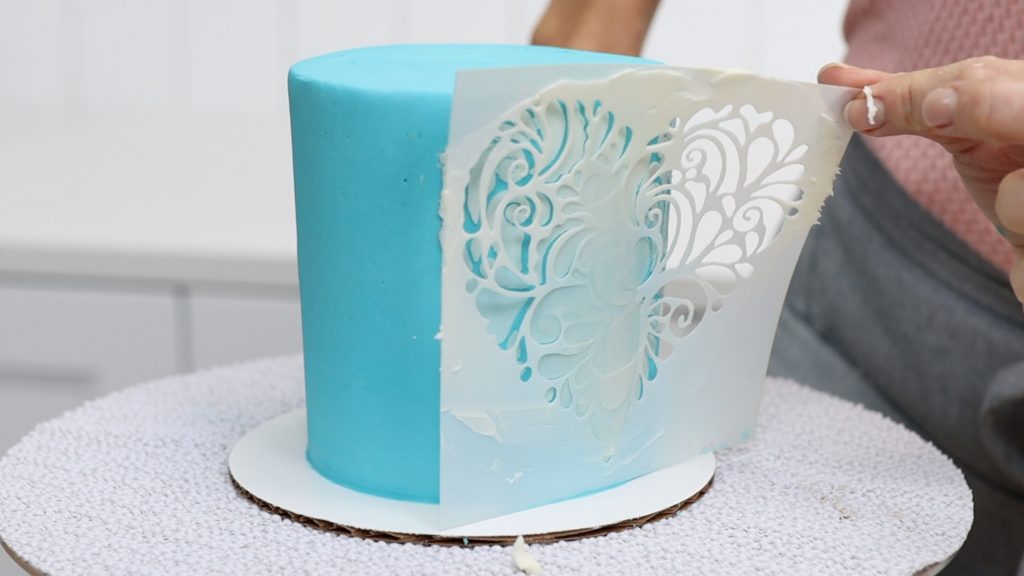
This pre-made stencil is much more detailed than my homemade stencil and if you can find a reasonably priced stencil, I think it’s worth buying one if you want to make your cake really impressive.
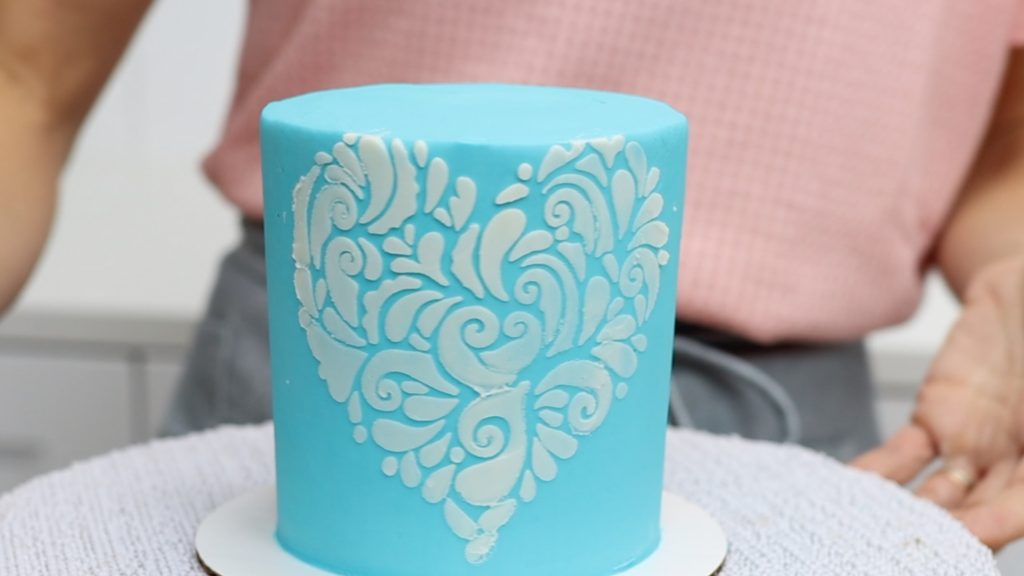
Let’s use up the leftover frosting from both cakes and look at two options for borders.
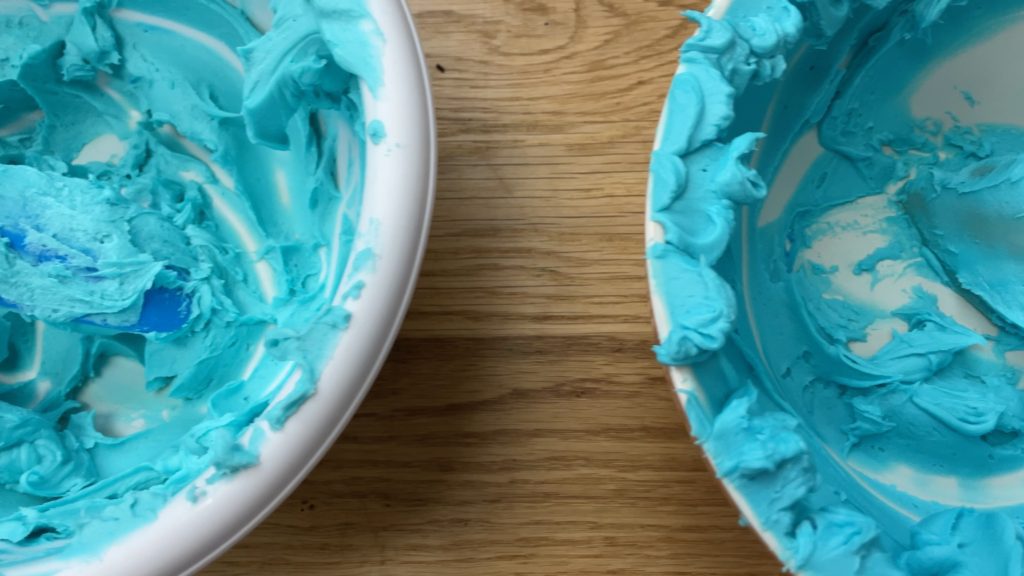
SAVE
The very cheap option is to spoon the frosting into a ziplock bag, seal it, and cut a piece off one of the bottom corners to make a homemade piping bag.
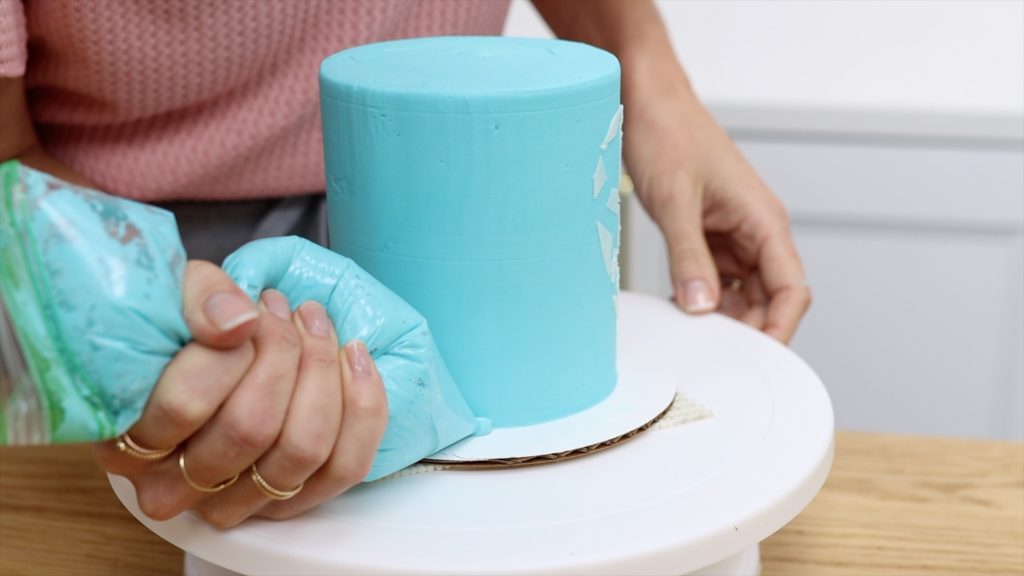
To pipe a border, start at the side of the cake and squeeze a dot out, pulling away sideways to leave a tail on the dot and then squeeze out the next dot to cover that tail. The seam of the ziplock bag will leave a line of texture on your dots so hold the bag at the same angle all the way around the cake, so that the seam is always facing the same way.
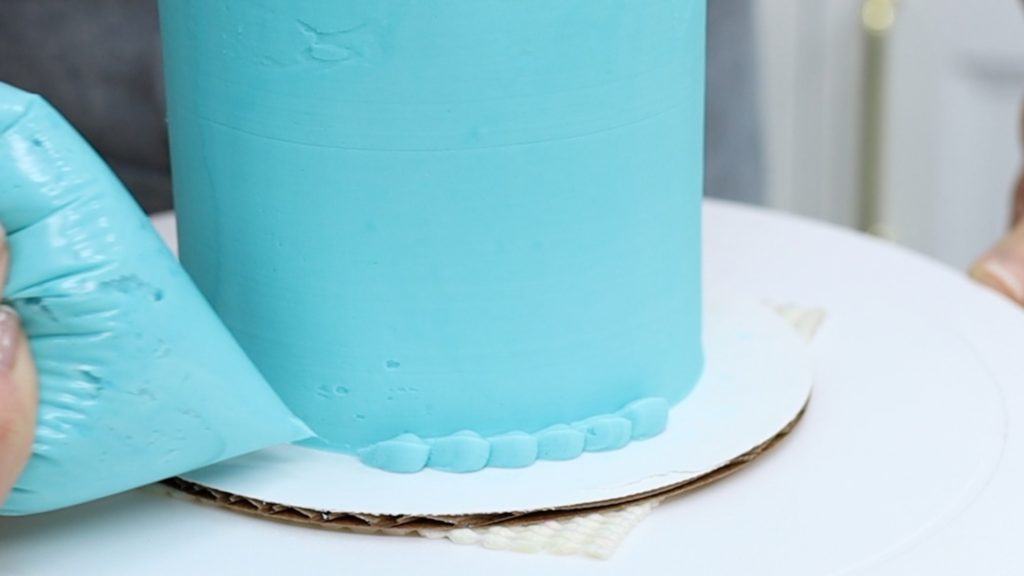
SPLURGE
The splurge option is a piping bag with a medium sized piping tip like a #12 tip. Put the piping tip in the piping bag and spoon your leftover frosting into the bag. Push the frosting down to the top and twist the end to make piping easier.
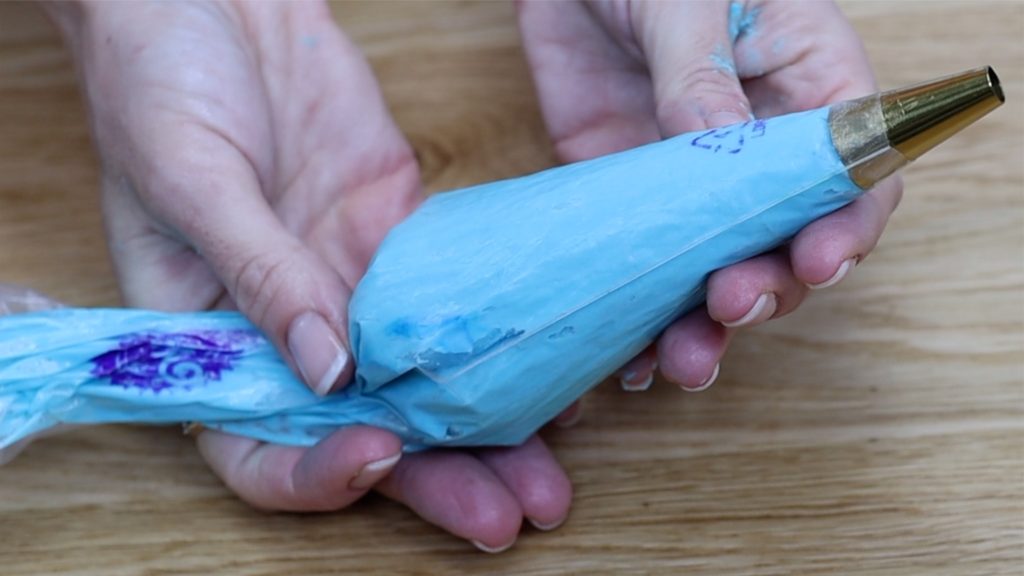
Pipe a dot onto the bottom of the cake, using the same technique of pulling away sideways and overlapping the tail of each dot with the next dot. These dots are much rounder and smoother than the dots piped with a ziplock bag, but that’s not necessarily a good thing…
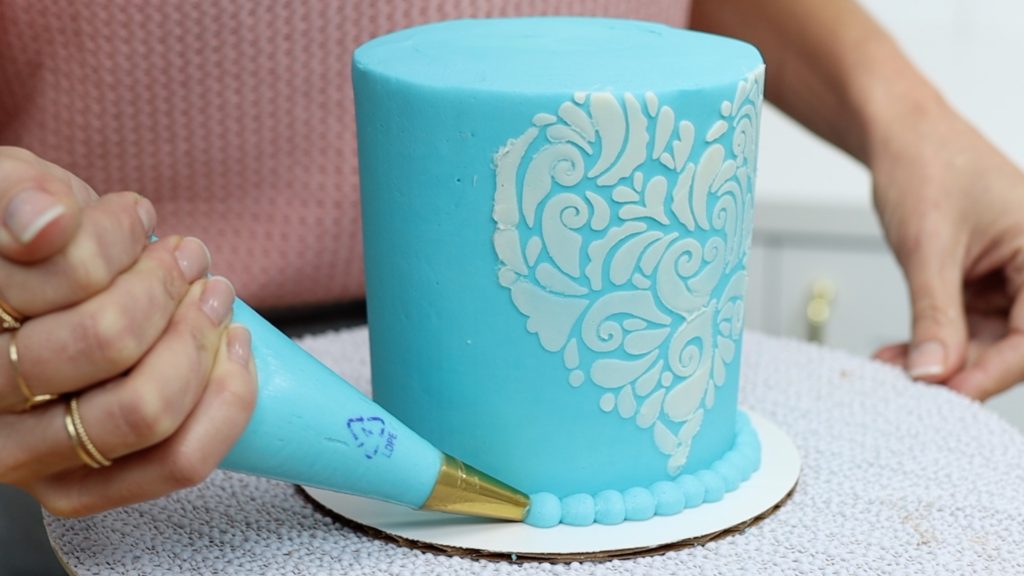
The texture from the seam on the ziplock bag dots looks nice and so does the shape of the dots. For a beaded border like this, I don’t think it’s worth splurging on a piping bag and tips. However, having piping bags and a variety of tips does give you lots of options for different types of borders and other piping.
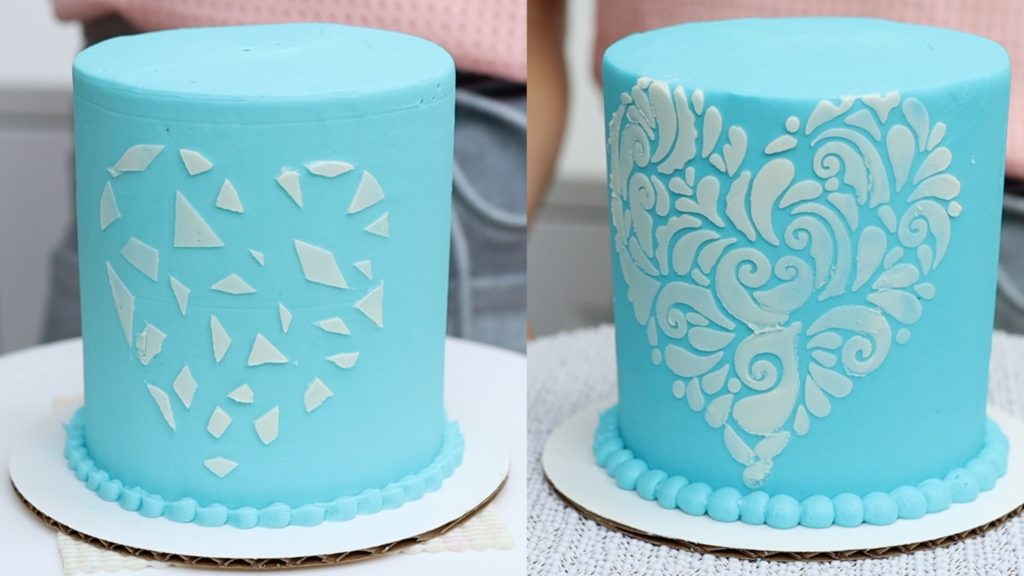
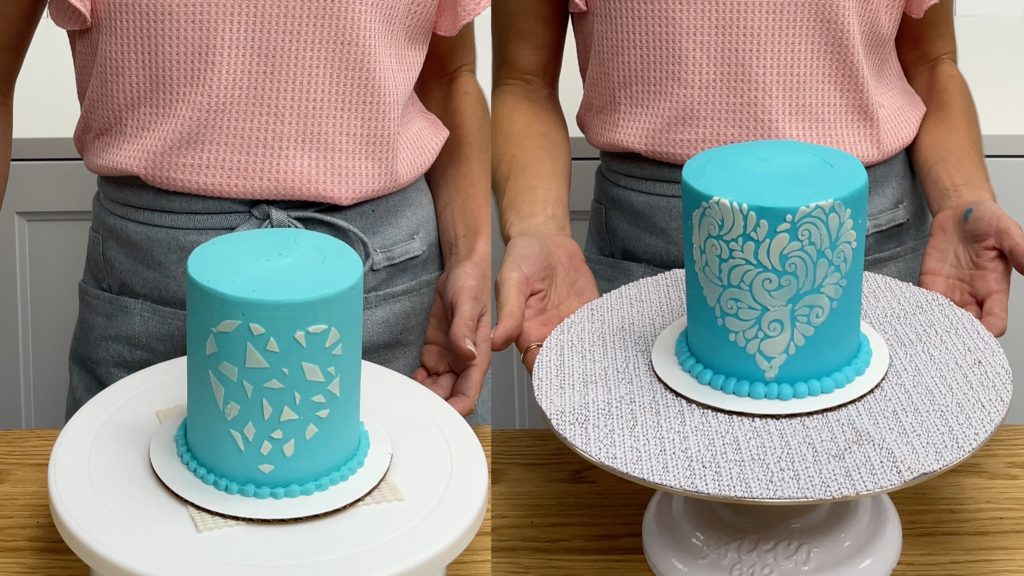
If you have any questions about this, ask me in the comments! If you’re looking for inspiration, join my ClubPLUS for access to ALL of my online courses as well as live online sessions for members only!
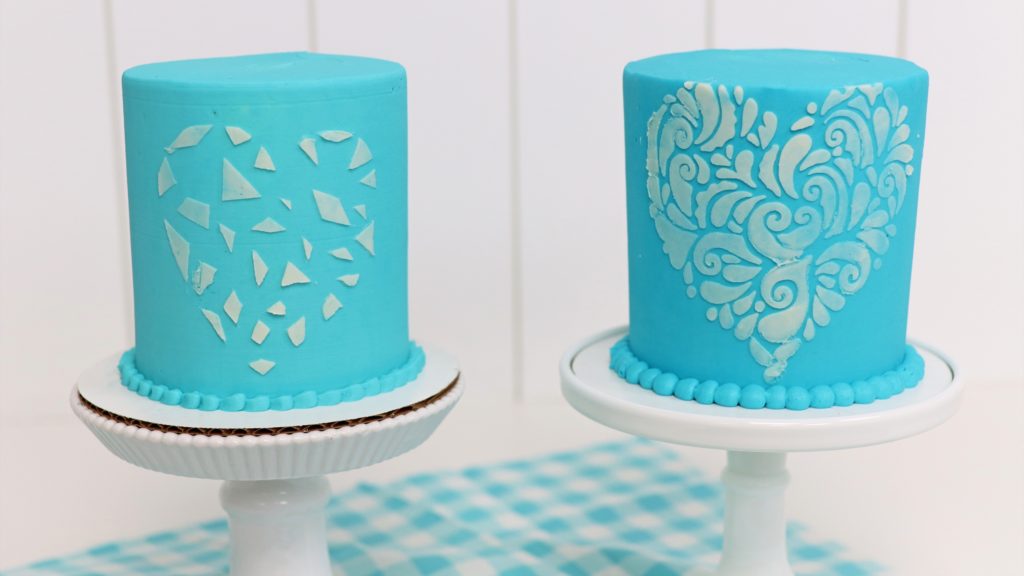
Here’s the video version of this tutorial:
